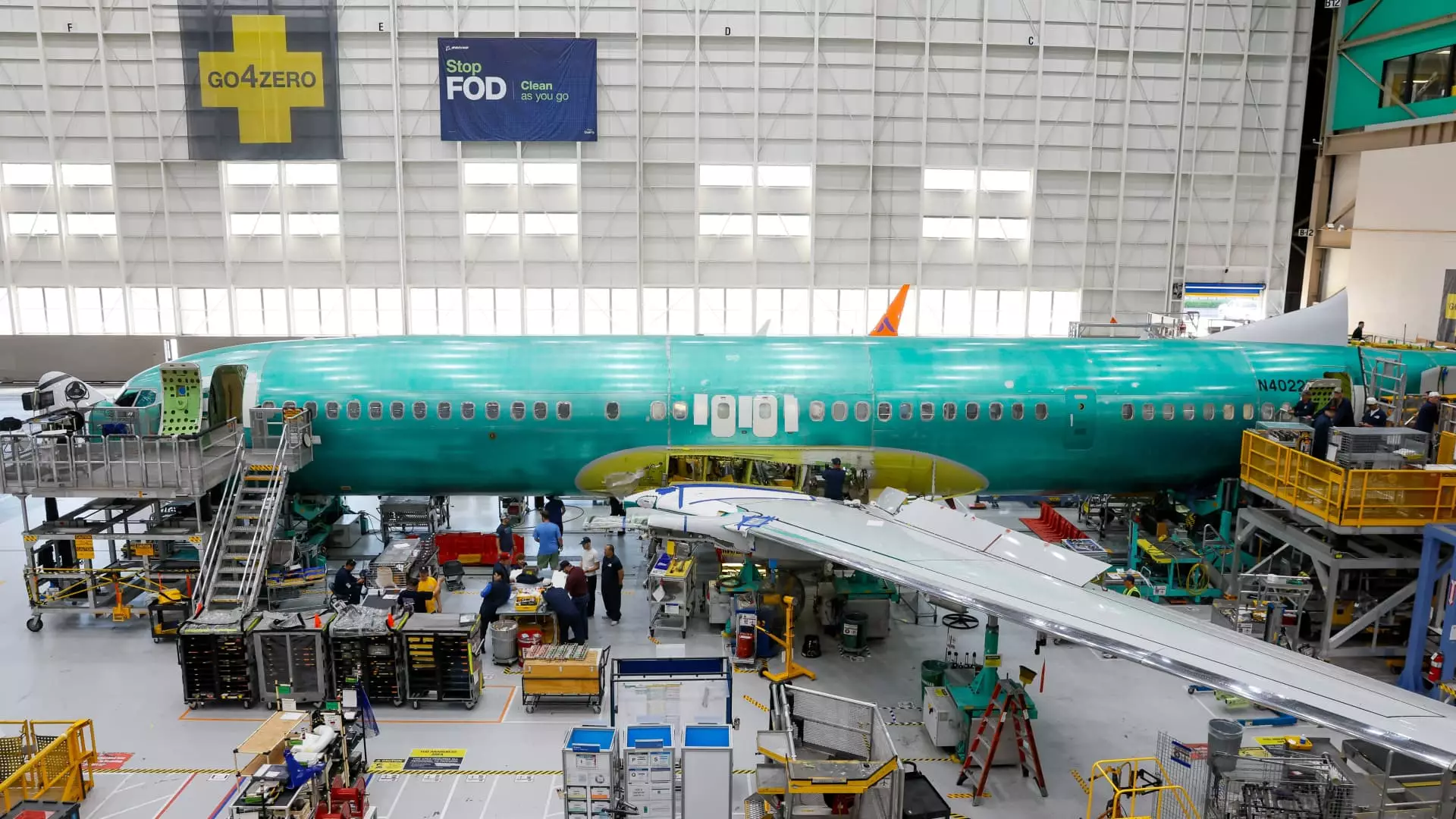Boeing Workers Face Crucial Decision: A Potential Strike Looms

As Boeing workers exercise their right to vote on a new labor contract, the implications of their decision extend far beyond the factory floors of Washington and Oregon. Scheduled for Thursday, this vote comes amid concerns over a potential strike that could severely disrupt the company’s production capabilities. Boeing, a titan in the aerospace industry, is experiencing a critical juncture as it attempts to rebound from past struggles while facing mounting pressure from both workers and stakeholders. The outcome of this vote represents the first significant challenge for newly-appointed CEO Kelly Ortberg, who assumed office just over a month ago.
The labor agreement proposed by Boeing and the International Association of Machinists and Aerospace Workers (IAM) presents a 25% wage increase alongside enhanced healthcare and retirement benefits. These provisions are significant, especially considering the extensive scope of labor negotiations across various industries in recent months, with many unions advocating for better compensation and working conditions. Notably, this agreement aims to uphold Boeing’s commitment to manufacturing its next aircraft within the Seattle area, which has implications for local economies and jobs.
However, while the 25% raise is substantial, it falls short of the IAM’s initial demand for a 40% increase. This discrepancy raises questions about the union’s bargaining power and the extent to which frustration over previous concessions is influencing worker sentiment. The union’s leadership, guided by IAM District 751 President Jon Holden, has openly recommended acceptance of the deal, emphasizing the challenges of achieving further concessions through a potential strike. This nuanced stance reflects the partnership dynamics between labor groups and management, where mutual respect and pragmatism must navigate deeply felt grievances.
CEO’s Call for Unity
In a note to employees, Ortberg expressed a blend of acknowledgment and urgency, recognizing the “passionate” reactions from workers while urging them to seize the opportunity that the new agreement affords. His statements underscore the delicate balance he must strike as he seeks to stabilize the company amidst a backdrop of safety lapses and quality issues, notably highlighted by recent incidents such as a door-panel malfunction. Ortberg’s leadership is under scrutiny as he confronts a legacy of operational challenges that have plagued Boeing, necessitating a skilled approach to uniting the workforce.
While Ortberg appeals for workers to prioritize a collaborative future over past grievances, underlying tensions persist. Workers may interpret the call for solidarity as an organizational pressure that diminishes their agency in the voting process. This tension between management’s forward-looking narrative and employees’ past experiences illustrates the complexities of labor relations, where trust and transparency must be continuously fostered.
Should the contract be rejected, the union has indicated a clear path towards a strike, contingent on a two-thirds majority vote among the employees. Such a work stoppage would not only impact Boeing’s operations but also reverberate throughout the broader aerospace industry. With safety and reliability hanging in the balance, the repercussions could extend to customer trust and market stability, further demonstrating how labor disputes can ripple through entire sectors.
Boeing’s average machinist salary currently stands at $75,608, with potential increases to $106,350 by the end of the contract’s four-year term, pointing to meaningful financial enhancements for workers. However, many employees may weigh their immediate financial needs against the longer-term potential of a strike. The difficult choice they face is emblematic of a larger trend in labor negotiations where immediate benefits are challenged by the potential for greater victories through collective action.
As polling closes at 6 p.m. PT, Boeing workers are at a crossroads. Their decision carries the weight of not only their immediate future but also the collective trajectory of Boeing as a company and a symbol of industrial resilience. The ramifications of this vote highlight the intricate interplay between labor and management, operational performance, and the socio-economic fabric of the communities that depend on Boeing’s success. Whether they choose to accept the agreement or strike, this moment represents a critical chapter in an enduring narrative of worker rights and corporate responsibility.





